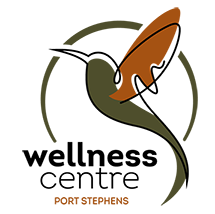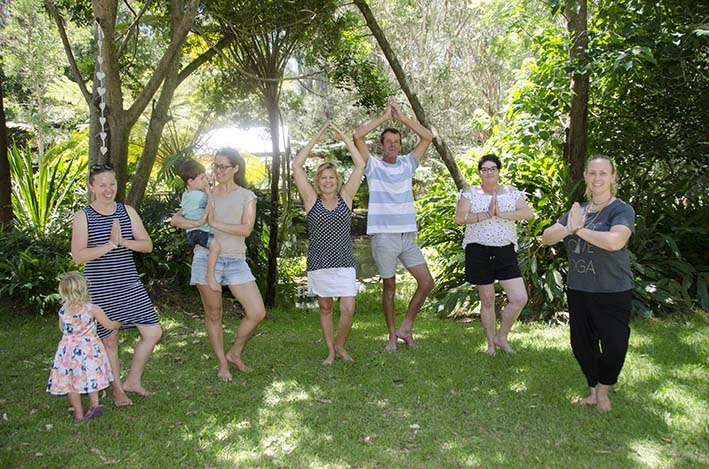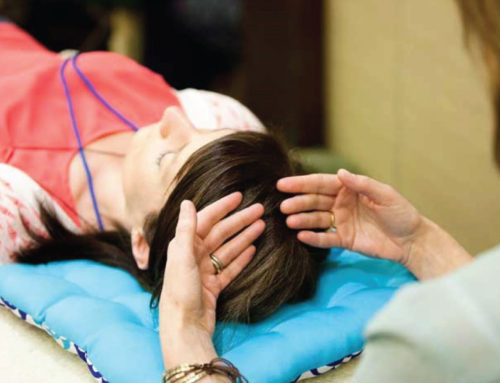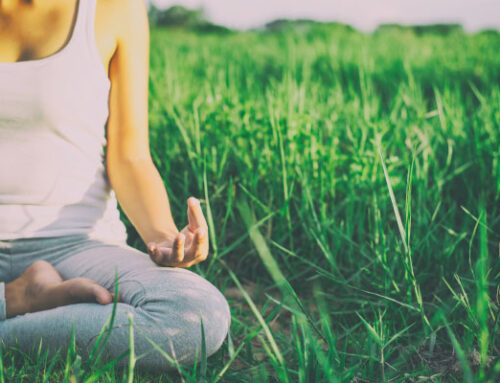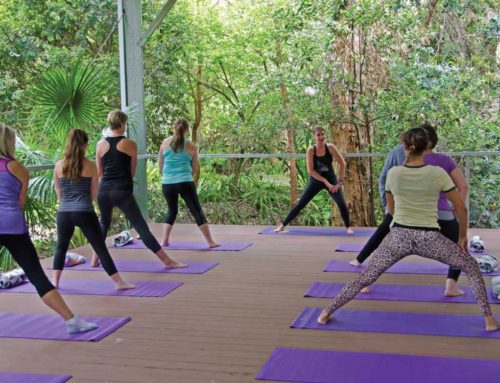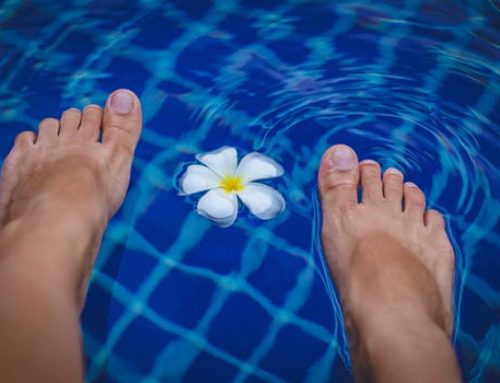By Nicole Shields, Life Flow Yoga
‘I could not at any age, be content to take my place by the fireside & simply look on. Life was meant to be lived. Curiosity must be kept alive. One must never, for whatever reason, turn his back on life’ – ELEANOR ROOSEVELT
Many portrayals in the media convey the impression that Yoga is primarily for young people.
With life expectancy continuing to climb, the senior age demographic is projected to become proportionally greater in the coming years.
And with that of course, comes the desire to live out our ‘golden years’ from a place of good physical & mental health with vitality. To remain active, fit, flexible & capable of facing the new challenges & opportunities of ageing, one must adapt & evolve, placing greater importance on appropriate activities suited to their needs.
Yoga is a gentle way to re-discover the particular needs of the body. Learning to move with ease & steadiness, finding strength & re-training our sense of balance are just some of the important lessons to consider.
Fortunately, wisdom does tend to come with age, as long as one continues learning. The brain evolves throughout life in response to experience & learning – new brain cells form, the brains emotional circuitry becomes more balanced with the brains two hemispheres used more equally by older adults.
These findings, point to mental health value of Yoga for Seniors as they learn not merely the physical poses (asanas) but rather a feeling for what is happening at a more subtle level of awareness within & between the poses.
Keeping the mind active while feeling the way into the poses, we further stimulate both physical & mental vitality even as the forces of ageing present new challenges & opportunities.
As we age, the body tends to become less mobile & weaker. There is an increased likelihood of having or developing arthritis, osteoporosis & other conditions which make regular everyday movements more of a challenge.
Yoga teaches us to listen to our body, with its innate sense of inner knowing & wisdom, sending us subtle messages all the time. Taking the time to move slowly & with greater awareness, we learn to move in a way that honours the body, just as it is, in the present moment.
Some points to think about when beginning Yoga –
- Acknowledge & accept all of your assessed conditions & share these with your Yoga teacher
- Have an open mind, heart & be willing to listen & learn
- Emphasis is on steadiness & ease in exploring poses & breathing practices over attainment or performance of these
- Make use of your props, to help create stability & support in your practice
- Learn where your ‘personal edge’ is in all of your poses & never move beyond this space until you are ready
- Always emphasize dynamic movement in connection with conscious breathing to stimulate the circulatory & respiratory systems
- Rest when needed
- Practice regularly
- Include moderate strength & resistance activities to build or maintain muscle strength & to help maintain bone density
- Include poses & energetic actions that require & develop balance by stabilizing the feet & ankles, as well as a variety of standing poses for building strength
- Include meditation & creative visualization practices that emphasize a sense of wholeness, body-mind integration & self-acceptance
- Create space for playfulness & to spontaneously explore movement
- Leave your worries, expectations & shoes at the door
- Please silence your mobile phones – after all, you have devoted this time to yourself & don’t want to be disturbed
- Avoid eating at least one hour prior to practicing Yoga
Namaste
Nicole teaches Yoga at Wellness Centre Port Stephens every Friday at 6:30am and 9:30am
